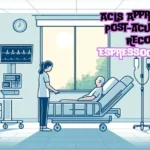In the field of medicine, allied health specialists collaborate with physicians and nurses to offer complete services, and they are essential in supporting and caring for patients. From diagnostic imaging technologists to physical therapists, the allied health sector offers a diverse array of career opportunities for those passionate about healthcare. However, navigating the educational path to becoming an allied health professional can seem daunting without proper guidance. This post will discuss the prerequisites for pursuing a profession in allied health and offer insights into the educational process.
Contents
Research Allied Health Specializations
Before embarking on your educational journey, it’s important to research the various allied health specializations available. This includes professions such as medical laboratory technicians, respiratory therapists, occupational therapists, and more. Understanding the responsibilities, job outlook, and educational requirements for each specialization will help you make an informed decision about your career path.
Choose The Right Educational Program
Once you’ve identified your desired allied health specialization, it’s time to choose the right educational program. Many colleges and universities offer degree programs, certificates, and diplomas in allied health fields. Consider factors such as program accreditation, curriculum content, and clinical training opportunities when selecting a program. Aspiring individuals looking to embark on their educational journey can easily find allied health career schools by conducting thorough research and exploring accredited programs that align with their career goals.
Complete Prerequisite Courses
Depending on the allied health program you choose, you may need to complete prerequisite courses before applying. These courses typically cover foundational subjects such as biology, chemistry, anatomy, and physiology. Plan your coursework in accordance with the particular needs of the program you have selected.
Apply To Allied Health Programs
After completing prerequisite courses, you can apply to allied health programs through the respective college or university’s admissions process. Make sure you send in all necessary application papers, such as personal statements, recommendation letters, and transcripts. Competition for allied health programs can be fierce, so it’s essential to demonstrate your passion for the field and highlight relevant experience or achievements.
Complete Clinical Rotations And Internships
Once accepted into an allied health program, you’ll have the opportunity to gain hands-on experience through clinical rotations and internships. These practical training experiences are integral to your education and provide valuable insight into the day-to-day responsibilities of allied health professionals. Take advantage of these opportunities to learn from experienced practitioners and develop essential skills in a real-world healthcare setting.
Obtain Licensure Or Certification
Obtaining a license or certification to legally practice may be necessary, depending on the allied health profession you have chosen. Requirements vary by state and specialty, so be sure to research the specific licensure requirements for your area. This may involve passing a national certification exam and fulfilling continuing education requirements to maintain your credentials.
Stay Current With Continuing Education
It is crucial for allied health workers to stay up to date on the most recent advancements and best practices in the constantly changing world of healthcare. To increase your knowledge and abilities, take part in conferences, workshops, and continuing education courses. This ongoing professional development will not only enhance your career prospects but also ensure the highest quality of care for your patients.
Network And Seek Mentorship
As an allied health worker, developing a strong professional network and looking for mentorship can be quite beneficial. Connect with colleagues, attend industry events, and join professional associations related to your specialty. Additionally, look for seasoned professionals who can help and guide you along your career path. In summary, a career in allied health demands a commitment to lifelong learning, perseverance, and dedication. You can effectively navigate the educational path and start a fulfilling job in allied health by adhering to these crucial stages and maintaining focus on your objectives. With opportunities for growth, advancement, and making a positive impact on the lives of others, the allied health field offers a fulfilling career path for those passionate about healthcare.











